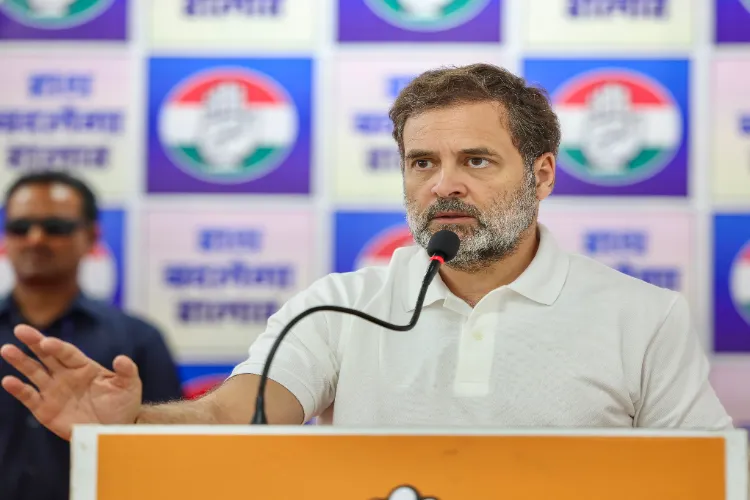
New Delhi
Terming the elections strictly as per electoral laws passed by the Parliament, the Election Commission of India (ECI) has invited the Leader of Opposition in Lok Sabha, Rahul Gandhi, for an interaction to discuss the issues related to his allegation on the Maharashtra Assembly Election held last year, sources said on Tuesday.
According to the sources, the letter was sent via email on June 12 and was also received at his residence.
As per the sources, it said in its letter that all elections are conducted by the Election Commission of India strictly as per Electoral Laws passed by the Parliament, Rules made therein, and instructions issued by the Election Commission of India from time to time.
ECI further mentioned that the entire election process is conducted in a decentralised manner at the Assembly Constituency level, which involved more than 100,186 Booth Level Officers (BLOs), 288 Electoral Registration Officers (EROs), 139 General Observers, 41 Police Observers, 71 Expenditure Observers and 288 Returning Officers (ROs) appointed by the Commission and 108,026 Booth Level Agents (BLAs) appointed by National and State Political Parties, including 28,421 of INC, across the state of Maharashtra.
"All elections are conducted by the Election Commission of India strictly as per Electoral Laws passed by the Parliament, Rules made therein, and instructions issued by the Election Commission of India from time to time. As you are aware, the entire election process is conducted in a decentralised manner at the Assembly Constituency level, which involved more than 100,186 Booth Level Officers (BLOs), 288 Electoral Registration Officers (EROs), 139 General Observers, 41 Police Observers, 71 Expenditure Observers and 288 Returning Officers (ROs) appointed by the Commission and 108,026 Booth Level Agents (BLAs) appointed by national and State Political Parties, including 28,421 of the INC, across the state of Maharashtra. We presume that any issue regarding the conduct of elections would have already been raised through election petitions filed in the competent court of law by the INC candidates," the letter reads.
The former Congress President had recently raised allegations against the poll body of "election rigging' in the Maharashtra assembly polls. However, ECI has rejected the allegations.
Gandhi further raised concerns about the integrity of the electoral process, citing the destruction of evidence as a potential indicator of election rigging against the backdrop of the Election Commission's (EC) revised guidelines on preserving video footage and photographs of elections, reducing the retention period to 45 days.
Earlier, amid a demand for making available video or CCTV footage of the webcasting of the polling stations during the poll day, EC sources said that it is "entirely contrary to the privacy and security concerns of the voters" and sharing of the footage would leave both the elector, who has voted, as well as the elector, who has not voted, vulnerable to "pressure, discrimination and intimidation by anti-social elements".
ECI sources also justified the decision in which the Election Commission has asked its state poll officers to destroy CCTV cameras, webcasting and video footage of the election process if the election result is not challenged in a court in 45 days.
ECI sources said some people are raising the demand for making available the video or CCTV footage of the webcasting of the polling stations on poll day.
READ MORE: Mohammad Hafeez Furqanabadi: Harbinger of education, harmony, social change
"While this suits their narrative in making the demand sound quite genuine and in the interest of voters and safeguarding the democratic process in the country, it is aimed at achieving exactly the opposite objective. What is veiled as a very logical demand is entirely contrary to the privacy and security concerns of the voters, the legal position laid down in the Representation of the People Act, 1950/1951 and the directions of the Supreme Court of India," a source said.
